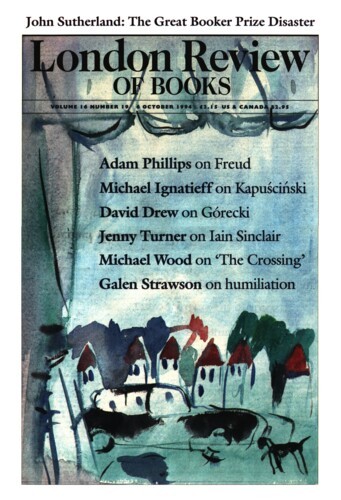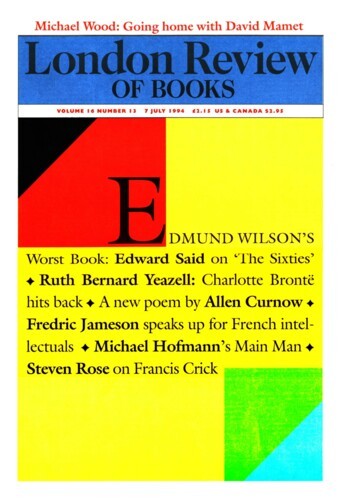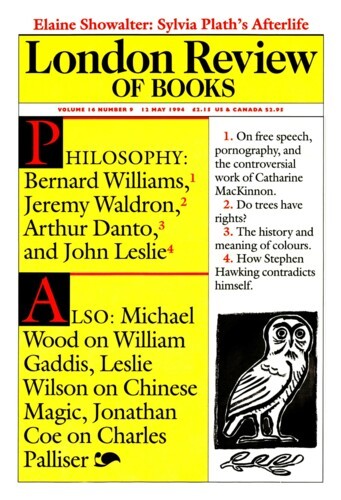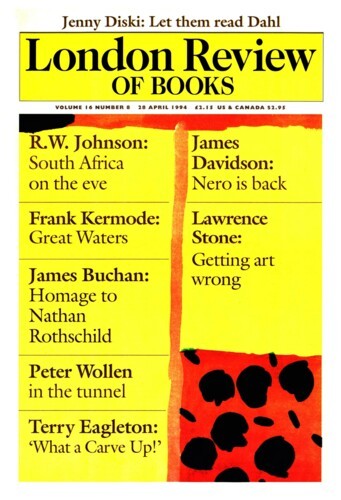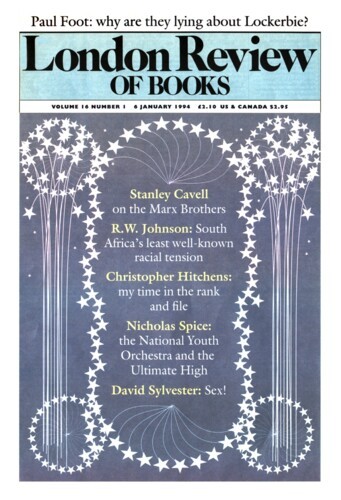Deadly Fetishes
Terry Eagleton, 6 October 1994
Magic realism is usually thought of as a Third World genre, appropriate to a place where the supernatural is still taken seriously, where fable and folk-tale still flourish and where fantasy can provide some pleasurable relief from a harsh social reality. But the genre is equally at home in a West for which fantasy is a major industry, where reality – or what tattered remnants of it we have left – seems endlessly pliable, where fact is shot through with fiction and where, for technology or consumerist ideology, all things seem equally possible. The comma between ‘East’ and ‘West’ in Salman Rushdie’s title thus forms a bridge as well as marking a gap, as we move within the book – itself divided into three sections (‘East’, ‘West’ and ‘East, West’) – from an Eastern to a Western way of dividing up the real.’
